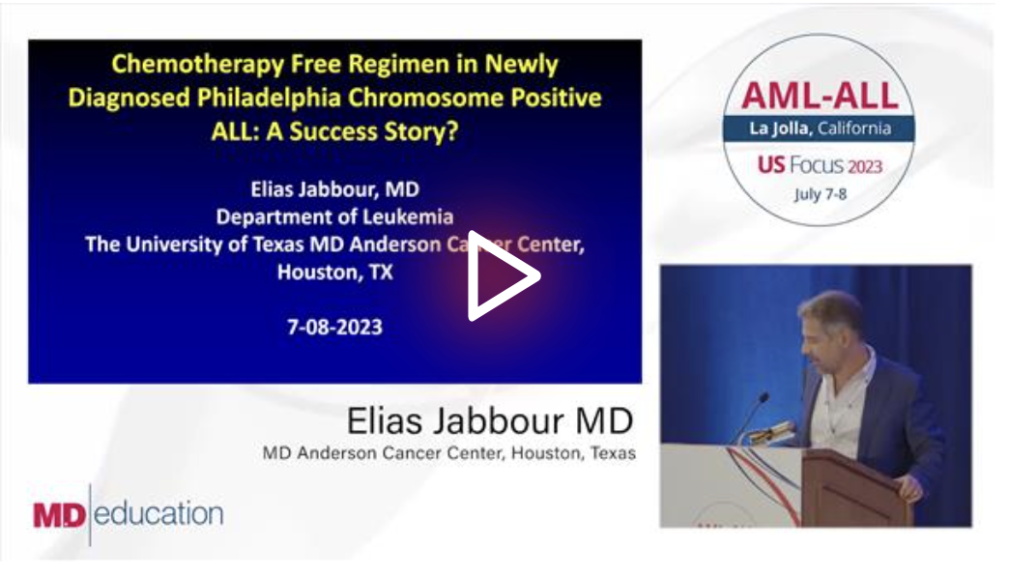The recent approval by the Food and Drug Administration (FDA) of ponatinib (ICLUSIG®) in combination with chemotherapy represents a significant milestone in the management of adult patients with newly diagnosed Philadelphia chromosome-positive acute lymphoblastic leukemia (Ph+ ALL). This article provides oncologists with a detailed analysis of the efficacy, safety profile, and dosing considerations associated with this newly approved regimen.
Efficacy Evaluation: PhALLCON Trial
The efficacy of ponatinib (ICLUSIG®) in newly diagnosed Ph+ ALL was evaluated in the PhALLCON trial, a randomized, active-controlled, multicenter study involving 245 adult patients. Participants were randomized in a 2:1 ratio to receive either ponatinib (ICLUSIG®) 30 mg orally once daily or imatinib 600 mg orally once daily, both in combination with chemotherapy. Chemotherapy comprised induction, consolidation, and maintenance phases. Ponatinib (ICLUSIG®) dosage was adjusted to 15 mg once daily upon achieving minimal residual disease (MRD)-negative complete remission (CR) at the end of induction.
Efficacy Outcome: MRD-Negative CR Rate
The primary efficacy outcome measure was the MRD-negative CR rate at the end of induction. Results demonstrated a significantly higher MRD-negative CR rate in the ponatinib (ICLUSIG®) arm compared to the imatinib arm, with rates of 30% and 12% respectively (Risk difference 0.18, 95% CI: 0.08, 0.28, p = 0.0004), indicating superior efficacy of ponatinib (ICLUSIG®) in achieving deep remission.
Safety Profile
Adverse reactions associated with ponatinib (ICLUSIG®) plus chemotherapy included hepatic dysfunction, arthralgia, rash and related conditions, headache, pyrexia, abdominal pain, constipation, fatigue, nausea, oral mucositis, hypertension, pancreatitis/elevated lipase, peripheral neuropathy, hemorrhage, febrile neutropenia, fluid retention and edema, vomiting, paresthesia, and cardiac arrhythmias.
Dosage and Administration
The recommended dosage of ponatinib (ICLUSIG®) is 30 mg orally once daily, with a reduction to 15 mg orally once daily upon achieving MRD-negative CR at the end of induction. Ponatinib (ICLUSIG®) should be continued with chemotherapy for up to 20 cycles until loss of response or unacceptable toxicity. Detailed dosing guidelines and information on concomitant agents are available in the prescribing information.
Conclusion
The accelerated approval of ponatinib (ICLUSIG®) in combination with chemotherapy for newly diagnosed Ph+ ALL offers a promising treatment option for adult patients. Data from the PhALLCON trial demonstrate superior efficacy of ponatinib over imatinib in achieving MRD-negative CR, highlighting its potential to improve outcomes in this patient population. However, oncologists should remain vigilant regarding the safety profile of ponatinib and adhere to recommended dosing and monitoring protocols to optimize patient care. Further studies are warranted to confirm long-term efficacy and safety outcomes.
Reference Links:
OncologyTube Links:

